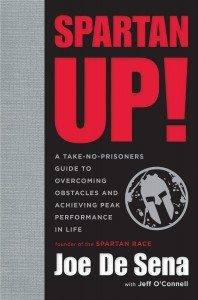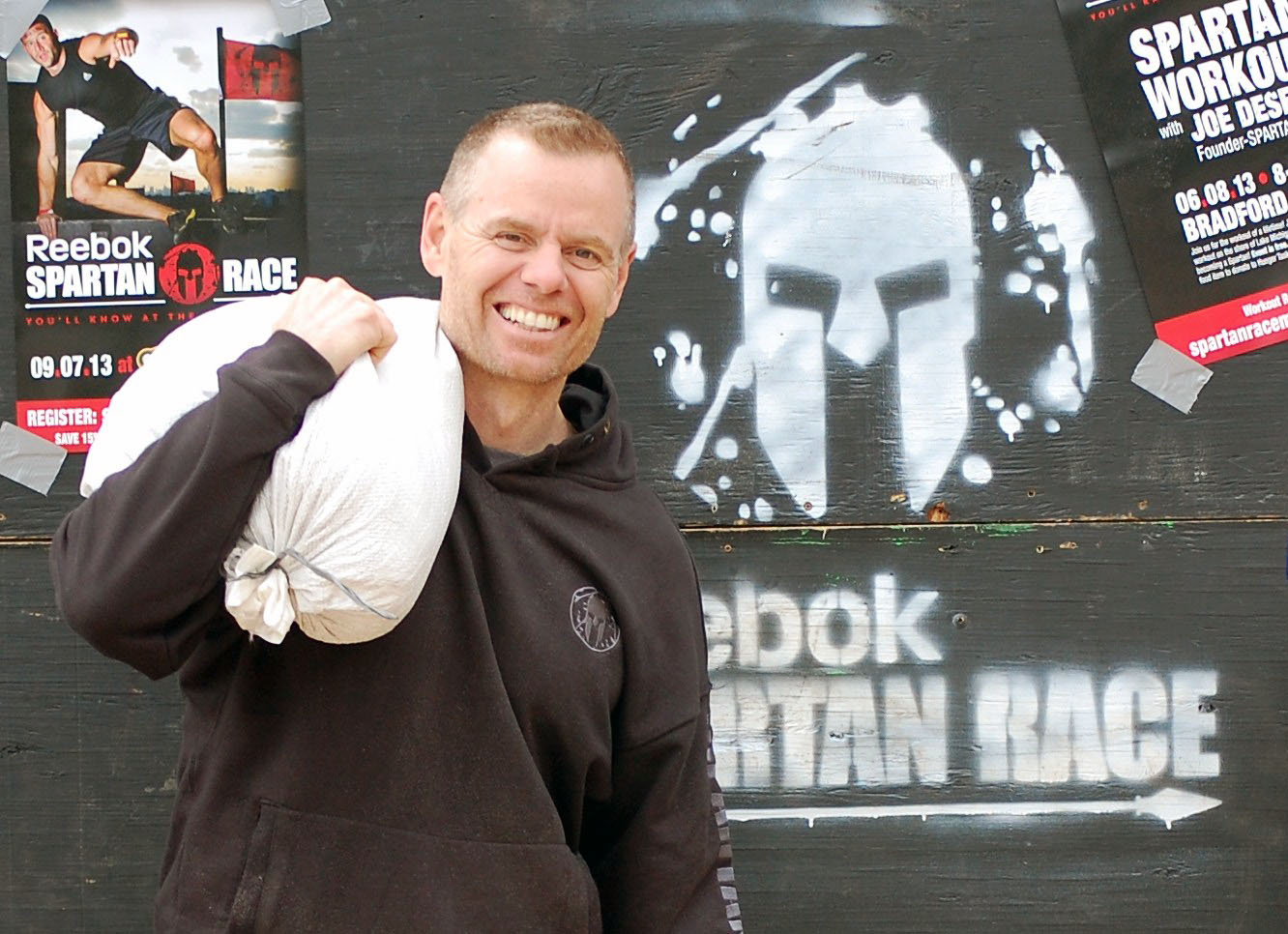February 22, 2014
Click here for the full written transcript of this podcast episode.
Joseph De Sena (pictured above) is 44 years old.
His racing resume is the stuff of legends – over 50 ultra-endurance events overall and 14 Ironman events (in one year alone). Most of his races are 100 miles or more with a few traditional marathons in the mix. (He once said that running a 26.2 marathon distance was “adorable.”)
To put things in perspective, Joe raced the Vermont 100, the Lake Placid Ironman and the Badwater Ultra… all in one week. The elevation climb for the 135-mile Badwater race, which starts hundreds of feet below sea level in Death Valley, is over 8,500 feet up to Mt. Whitney and temperatures soar into the 120’s. Joe also biked cross-country in the Furnace Creek 508 which has been coined “The Toughest 48 Hours in Sport.”
Joe’s other athletic achievements include:
– Raid International Ukatak: Canada, January 2001
– IditaSport: Alaska February, 2001 (1st place)
– Odyssey Adventure Race: Big Island, Va., March 2001
– OAR Beast of the East: Clayton Lakes, Va., April 2001 (1st place)
– Raid The North Extreme: Newfoundland, June 2001 (13th place out of 42)
– Adrenaline Rush: Dublin, Ireland, July 2001
– Discovery World Championships: St. Moritz, Switzerland August, 2001
And Joe is CEO and Co-founder of the popular Spartan Race series.With over 80 events planned for 2014, Reebok Spartan Race is making obstacle racing one of the fastest growing sports in the world. This international, timed event series features races at three distances (Sprint, Super and Beast), culminating each year in World Championship finals – $300,000 in cash and prizes were awarded in 2013 alone. While featuring competitive elite heats, Reebok Spartan Races are for athletes of all levels and abilities and are geared toward ripping people off their couches and getting them into the outdoors, living a fitter life.
 Joe just wrote a new book entitled “Spartan Up!: A Take-No-Prisoners Guide to Overcoming Obstacles and Achieving Peak Performance in Life” and in this audio episode, we're going to delve into Joe's book, and how you can live a Spartan lifestyle while achieving peak performance in your own life.
Joe just wrote a new book entitled “Spartan Up!: A Take-No-Prisoners Guide to Overcoming Obstacles and Achieving Peak Performance in Life” and in this audio episode, we're going to delve into Joe's book, and how you can live a Spartan lifestyle while achieving peak performance in your own life.
This is just Part 1. Part 2 is going to be YOUR questions for Joe. So leave your questions in the comments section under this show, and we'll get to them in Part 2!
If you enjoyed this episode, you should also check out:
–Look, Feel and Perform Like An Ancient Spartan Warrior – How To Become An Absolute Physical Beast
–The Ultimate Guide to Get Ready for an Obstacle Race, Mud Run, Spartan Race or Tough Mudder.
Questions, comments or feedback about Joe DeSana and the Spartan lifestyle? Do you like Joe's take-no-prisoners approach or do you think he's too extreme? Do you have questions for Joe or Ben? Leave your thoughts below, along with your questions for Joe!


What advice do you have for someone who is extremely injury and arthritis prone for achieving spartan-like performance?
First thing would be to get on something like this http://pacificfit.net and then make sure your core and kinetic chain is strong. Check this out https://bengreenfieldfitness.com/2013/04/stren… and pick up this book https://bengreenfieldfitness.com/2011/11/episo…
Terrific new thinking – and the Spartan Race organization has to be a type of endurance effort in itself! But aren’t most athletes limited by their training and conditioning rather than their will? And is “willing” oneself beyond one’s conditioning dangerous and ultimately self-defeating?
Good point, Richard but you should check out Episode #138: Tim Noakes Tells You How You Can Use The “Central Governor” To Tap Into Your Muscle’s Hidden Potential
Just finished listening to the podcast. Here is my question for part 2: I have a 1 year old son and I am wondering at what age you can begin to introduce ways to become more physically and mentally strong. How young is to young? Keep up the great work!
What is Joe's recommended eating plan???
Does he believe that an older person (a senior citizen) can become a spartan and what would need to be different in the approach?
What are his sleep recommendations?
And whatever Ben thinks of because Ben almost always asks the questions that are on my mind and almost at the moment that I think of them.
Ben is an excellent interviewer, he must have a journalistic background. Also, he's a heckuva listener – which leads to a good interview.
I do enjoy every episode of your podcast, Ben, but this one is simply AWESOME!!! I don't have any specific topic for Pt.2 to ask Joe to cover – just wish that new sequence will hold as many powerful messages as the first one!!!